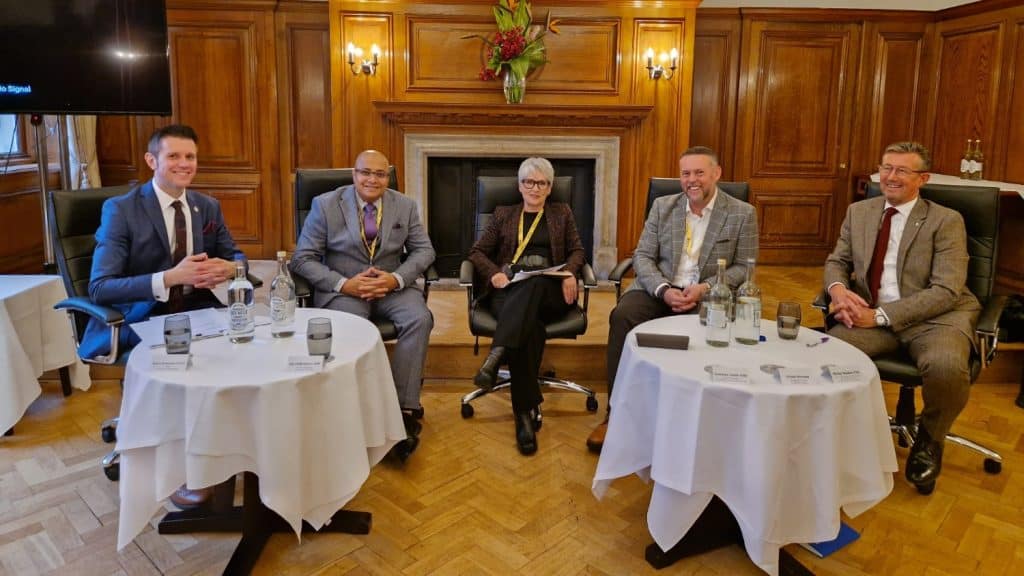Leading hospitality figures gathered in Bath for a crucial event focused on achieving carbon neutrality within the industry. Hosted by Keenan Recycling, the UK’s largest national food waste collection company, the event took place at the prestigious Royal Crescent Hotel & Spa, where key figures from hospitality and sustainability discussed practical solutions for reducing carbon emissions and tackling food waste.
The urgency of these discussions was underscored by upcoming waste regulations due to take effect in March 2025. The UK hospitality and food sectors currently generate an estimated 1.1 million tonnes of food waste annually, and the event highlighted the critical need for coordinated action.
Key figures from the hospitality sector took part in the panel discussion. Robert Richardson, CEO of the Institute of Hospitality, opened the conversation by stressing the importance of collective action. He pointed out that for every two tonnes of food consumed in the sector, another tonne ends up as waste. He emphasised the importance of teamwork and transparency in meeting sustainability goals, highlighting that carbon neutrality by 2024 was an achievable target.
“Sustainability isn’t a spectator sport—it’s a collective effort,” Richardson stated. “To meet these expectations, we need to focus on education, transparency, and collaboration, both within our teams and with local communities.”
Philip Shelley, Senior Operational & Policy Manager and National Lead for Net Zero Food at NHS England, highlighted the financial and environmental impact of food waste, revealing that the NHS alone wastes between £26 million and £30 million worth of food annually. Shelley suggested that menus should be seasonal and locally sourced to minimise waste, emphasising the need for responsibility in sourcing and consumption.
Lorraine Jarvie, General Manager of the Royal Crescent Hotel, discussed the challenges of achieving sustainability in a historic city like Bath. She explained that while the city’s listed buildings present unique hurdles, the hotel has made progress through initiatives such as using renewable energy and partnering with cycling companies to collect food waste. She also acknowledged the changing expectations of hotel guests, who increasingly inquire about sustainability efforts.
Raj Chakraborty, Regional General Manager at Macdonald Hotels & Resorts, pointed out the growing consumer demand for sustainable practices, stating that 43% of global travellers are willing to pay more to stay in eco-friendly properties. He outlined his hotel group’s commitment to sustainability, including the use of electric vehicles for deliveries and a focus on seasonal, locally sourced ingredients.
Grant Keenan, Managing Director of Keenan Recycling, spoke about the company’s role in driving change through waste management innovation. Keenan Recycling’s mission is to convert food waste into renewable energy via anaerobic digestion. Keenan also emphasised the importance of reducing food waste at its source and praised initiatives like FairShare and Too Good To Go for their role in redistributing surplus food.
Looking ahead, there was a sense of optimism among the attendees, with many recognising the increasing importance of sustainability in driving both business success and ethical responsibility. With more customers demanding sustainable practices, the event underscored that adopting green solutions is not only a moral imperative but also a sound business strategy.
For further information on how Keenan Recycling can help businesses prepare for the new food waste legislation, visit keenanrecycling.co.uk/news/navigating-the-new-food-waste-legislation-in-england.




